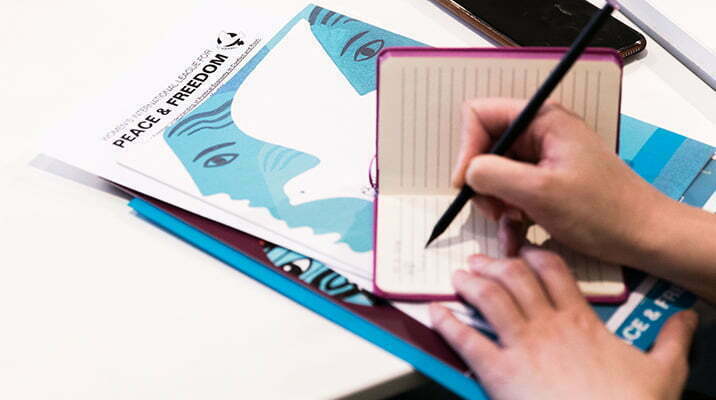We all hear a lot about women, conflict and security… but what about food security? What is the connection here?
This is the International Year of Family Farming, and it is the time in which we can work to ensure women’s voices can be heard. During the event on “Women, Food Security, Conflict and Peace” that took place during this session of the Human Rights Council (HRC), Emma McGhie from the Italian Section of WILPF, mentioned their involvement in the national work of the civil society in this direction, uniting WILPF’s gender lens to the National Committee on Family Farming and the one on Food Sovereignty.
Two are the aspects to keep in mind: on one side, women suffer more from malnutrition and this also increases the risk of babies dying. Of course, in situations of conflict, this picture is worsened. On the other side, women play vital roles in ensuring the food security of their families, which is strictly linked to the outbreak of conflicts.
The importance of agriculture and the impact of multinational corporations
When talking about food security and conflicts, we must not forget agriculture. The crises of it, and the linked food-prices hikes have a key part in creating conflicts. As stated in the “Wake up before it’s too late” report from the United Nations Conference on Trade and Development (UNCTAD) there is urgent need for a shift in agricultural development, from a monoculture-based and high-external input dependent industrial production, towards sustainable and regenerative production systems that also improve the productivity of small-scale farmers.
Women have a key role in the transformative changes that are needed, they are the custodians of local food systems and of seeds, ensuring biodiversity. But today seeds are being genetically modified and patented by multinational corporations, and food sovereignty is at stake.
This conversation on the impact of multinational corporations is particularly important at the HRC as States and stakeholders are also discussing the necessity to have a treaty regulating the activities of these companies.
The right to food, women’s participation and peace
The UN Special Rapporteur on the Right to Food has defined it as “The right to have regular, permanent and unrestricted access (…) to quantitatively and qualitatively adequate and sufficient food corresponding to the cultural traditions of the people to which the consumer belongs, and which ensure a physical and mental, individual and collective, fulfilling and dignified life free of fear”. If this human right is not granted, there is no justice and no peace.
Thus, women’s participation in the prevention, management and resolution of conflicts, as provided in the UN Security Council Resolution 1325, has to be ensured also in relation to their contribution to food security, which is obstructed by various factors: gender-based violence, which prevents women from taking care of their fields or travelling to markets, lack of basic infrastructure (rural roads, information infrastructure), and discrimination in the access to land, credit, training and other resources.
As indicated by WILPF’s President Adilia Caravaca, our work for peace and security must lead us to advocate for agrarian policies, land tenure laws, and all that would allow women’s equal inclusion in the path to build peace.
This is just a starting point. We hope that many of you will join us in this peaceful fight.
Sign up to our Newsletter Update from the HRC to follow our work during this session and learn about important human rights issues!





